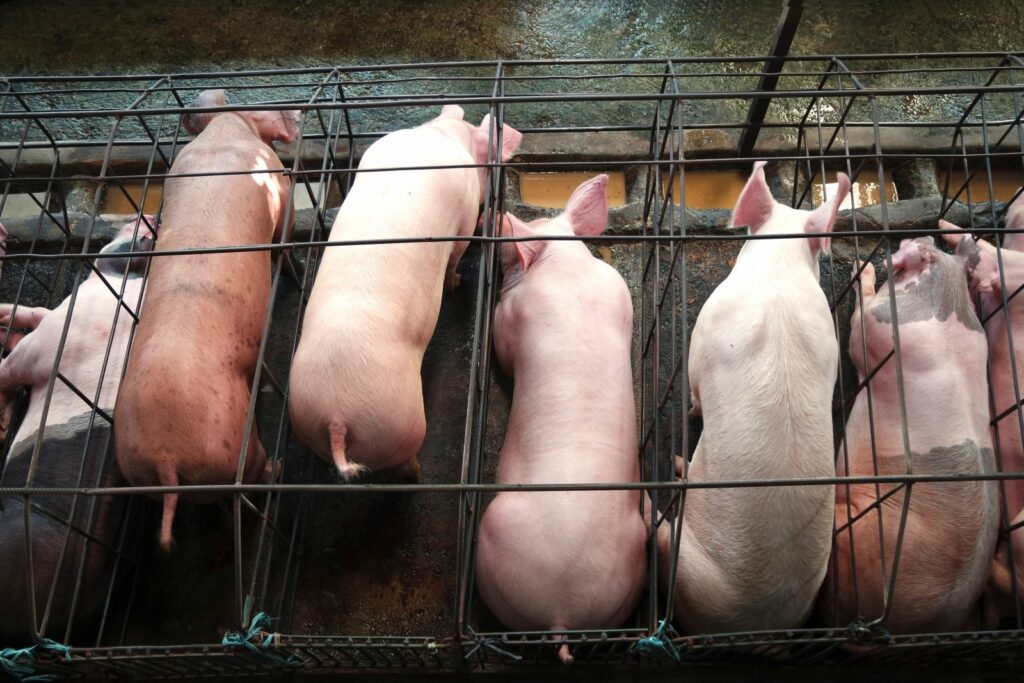UK government accused of neglecting welfare and carbon commitments in new trade deals
14th March 2023
Farming groups have criticised the government over plans to sign trade agreements with Canada and Mexico that will lead to low-welfare imports of beef and pork undercutting British producers.

Animal charities in Canada say sows are often kept in stalls with not enough room for the animals to turn around, the Guardian writes.
Further imports of meat from North America could also compromise the UK’s carbon targets, especially following recent trade deals with Australia and New Zealand, farming groups have said.
Nick Allen, CEO of the British Meat Processors Association, raised concerns over the lack of binding stipulations on aspects such as animal welfare and environmental impact in free trade agreements.
“The UK has higher welfare standards than most of the countries we import from, which is a challenge for our local producers. If new trade deals follow the same formula as the recent ones with Australia and New Zealand, this will only exacerbate the problem and put the UK at a further disadvantage,” he told Farmers Guide.
“It’s up to the Government negotiators to include binding stipulations on things like animal welfare, however nothing was written into the two recent free trade agreements. This has strengthened the case for countries like Canada to demand similar access to our market.”
Regarding carbon footprint, he said until there is an internationally approved system for measuring and comparing emissions from livestock reared in different production systems around the world, it’s going to be difficult to create standards surrounding such measurements.
“It is also the case that work in the UK to establish our beef carbon footprint is not very advanced, and it is highly likely that some of our close competitors will be better placed to make such claims; indeed some already are,” he added.
“While there are general stipulations the Government could include in new free trade agreements, for example prohibiting the use of feed produced on deforested land, there are no guidelines under WTO [World Trade Organisation] rules that would allow the UK to limit imports of beef based on its carbon footprint.
“Also, while we are trading with countries like Canada under WTO rules, the UK can’t demand a higher standard from them than we are already accepting from other trading partners like the EU,” Mr Allen remarked.
“We don’t want to see further imports of beef”
NFU president Minette Batters warned further beef imports wouldn’t be accepted on the back of trade deals with Australia and New Zealand undermining domestic produce.
She was quoted by the Guardian as saying: “From Mexico our lines are pretty tough on this having given away so much on beef to Australia and New Zealand. We want the government to take a very, very firm line on further imports of beef.
“Environmental impacts are why beef was a sensitive sector, both in New Zealand and in Australia, and now in Mexico. And we want them now to really show that they are keeping their promises of not undermining farmers and trade deals. We don’t want to see further imports of beef.”
Meanwhile, Jack Abbott, Labour and Co-Operative Party parliamentary candidate for Ipswich, opposed the deal on Twitter:
“Suffolk has a proud agricultural heritage and is famous for its free-range pork.
“The trade deals the Conservatives want to sign will undercut farmers, lower animal welfare standards and add air miles to our food.
“We should support our home grown produce.”
Responding to backlash from the farming industry and environmental organisations, a government spokesperson said: “The government has always been clear that we will not compromise the UK’s high food safety and animal welfare standards in trade negotiations.
“Our accession to CPTPP [Comprehensive and Progressive Agreement for Trans-Pacific Partnership] will be on terms that are right for UK companies, consumers and farmers.”
Also known as TPP11 or TPP-11, the CPTPP is a free trade agreement (FTA) between 11 countries, including Australia, Canada, Mexico and New Zealand.
According to the Department for Business & Trade, the UK will continue to uphold its high standards in all trade agreements, including CPTPP. Decisions on these standards remain a matter for the government and will be made separately from any trade agreements.
To secure additional benefits for the whole of the UK, officials are currently pursuing modernised and comprehensive FTAs with Canada and Mexico that build upon current Trade Continuity Agreements.
